
Christopher Crockett is an Associate News Editor. He was formerly the astronomy writer from 2014 to 2017, and he has a Ph.D. in astronomy from the University of California, Los Angeles.

Trustworthy journalism comes at a price.
Scientists and journalists share a core belief in questioning, observing and verifying to reach the truth. Science News reports on crucial research and discovery across science disciplines. We need your financial support to make it happen – every contribution makes a difference.
All Stories by Christopher Crockett
-
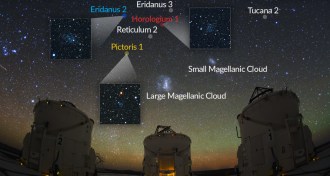 Astronomy
AstronomyAs many as nine new dwarf galaxies found outside Milky Way
A bevy of newly discovered satellite galaxies around the Milky Way could help astronomers study how galaxies form and the nature of dark matter.
-
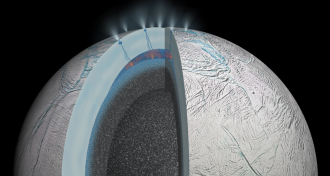 Planetary Science
Planetary ScienceSomething’s cooking on Enceladus
A trail of silicon-rich particles in one of the rings of Saturn points to possible hydrothermal activity on Enceladus.
-
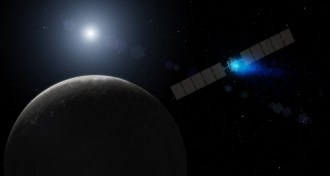 Planetary Science
Planetary ScienceDawn spacecraft arrives at dwarf planet Ceres
The Dawn spacecraft arrives at Ceres to begin a 14-month investigation of the dwarf planet.
-
 Astronomy
AstronomySupernova hurls star out of the galaxy
The fastest-moving star to leave the Milky Way might have been launched by a nearby exploding star.
-
 Astronomy
AstronomyHubble telescope sees quadruple
A galaxy bends light to create four images of the same supernova.
-
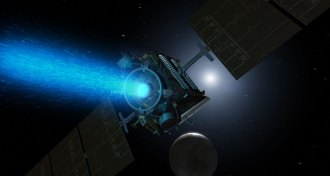 Planetary Science
Planetary ScienceDawn spacecraft on final approach to Ceres
Dawn gets ready to enter the first orbit of its 14-month visit to the dwarf planet Ceres.
-
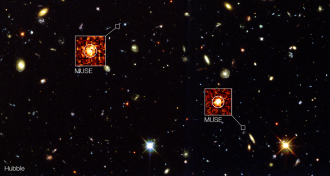 Astronomy
AstronomyHundreds of galaxies seen in a new 3-D view of the universe
A new instrument lets astronomers measure the distances to hundreds of galaxies at once, looking back across the age of the universe.
-
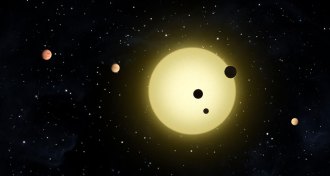 Astronomy
AstronomyPlanet collisions may have rearranged crowded solar systems
Solar systems discovered by Kepler with just one or two worlds may be remnants of planet families that were once far more crowded.
-
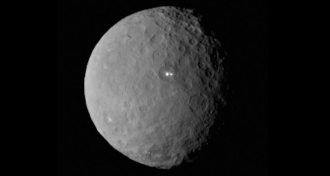 Planetary Science
Planetary ScienceMysterious bright spot on Ceres has a partner
A new image from the Dawn spacecraft finds two bright patches within a basin, possibly caused by an ice volcano.
-
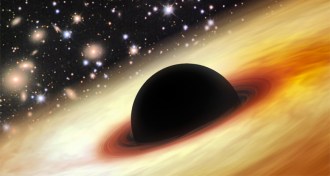 Astronomy
AstronomyMonster black hole lurks in the early universe
A black hole weighing the same as 12 billion suns is the most massive one known in the early universe.
-
 Oceans
Oceans‘Ocean Worlds’ chronicles the story of water on Earth and across the cosmos
Jan Zalasiewicz and Mark Williams recount the history and predict the future of Earth’s oceans.
-
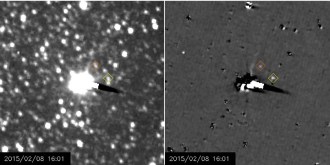 Planetary Science
Planetary ScienceNew Horizons spies two of Pluto’s moons
Nix and Hydra come into view on the 85th anniversary of Pluto’s discovery.